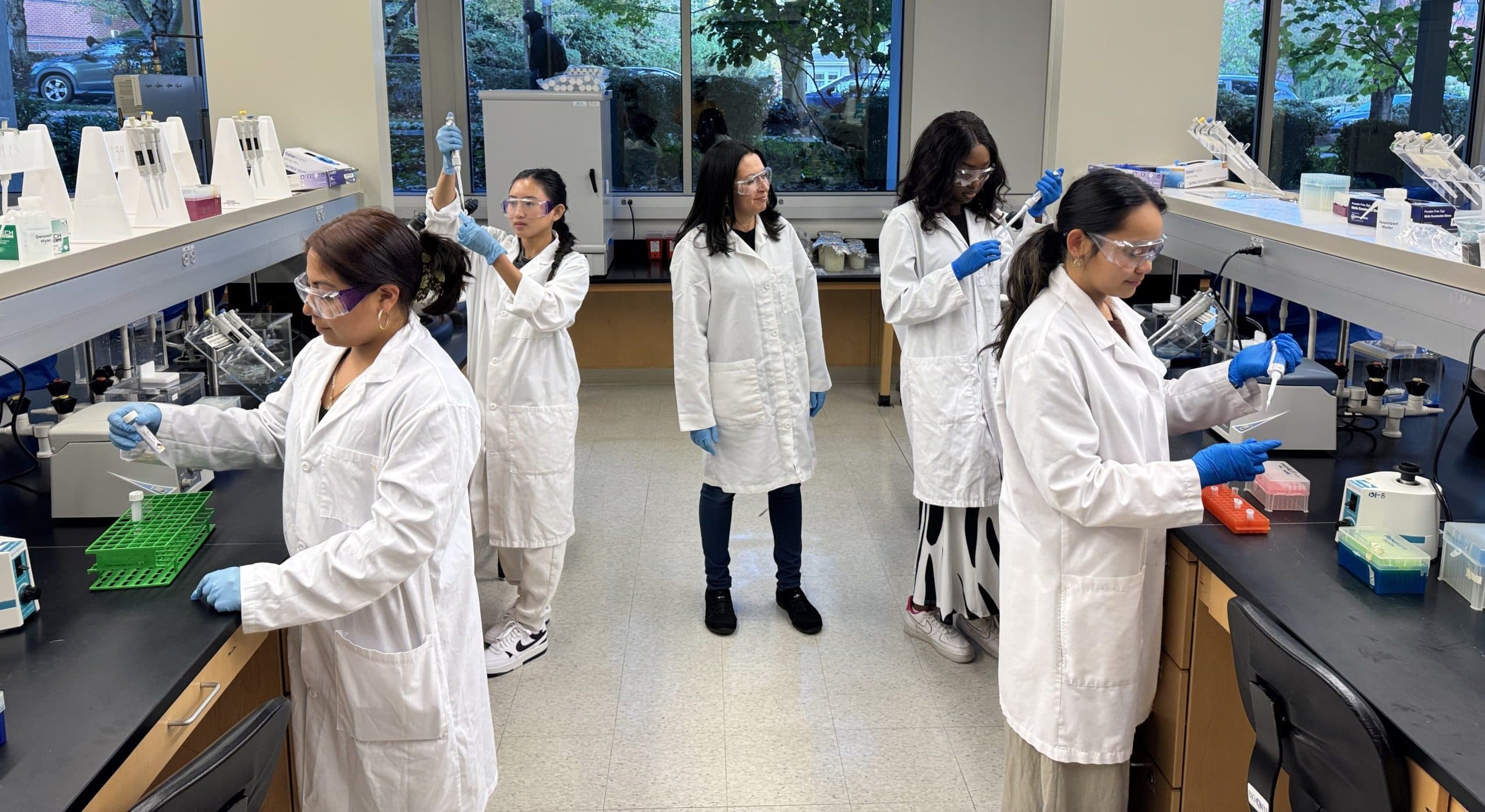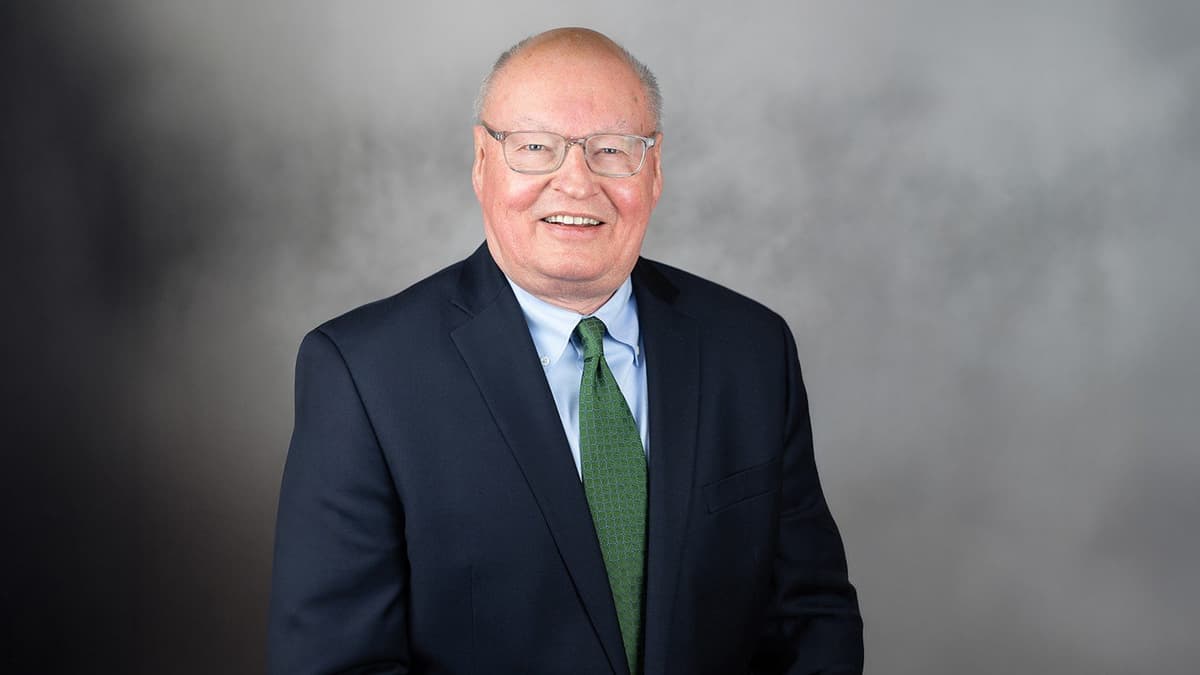It’s nice to have your research covered by the national media, but recent biology graduate Jewel Garcia would add it’s even better to conduct the research with “an awesome team of professors and peers.”
Garcia’s yearlong research study, “Fishy business in Seattle: Salmon mislabeling fraud in sushi restaurants vs. grocery stores,” was led by SPU Biology Professor Tracie Delgado and conducted with fellow students Yennifer Gaspar, Angelique Djekoundade, and Mhicca Dalere. The group acquired salmon samples from 67 grocery stores and 52 sushi restaurants. DNA from each sample was isolated and tested in the Eaton Hall science lab to identify the fish. Overall, the study revealed that almost one-third of Seattle-area sushi restaurants with wild salmon on the menu were actually farmed salmon. In grocery stores, wild salmon was substituted with another salmon species (either another wild salmon or farmed) about 11% of the time.
More than 20 media outlets across the country reported on the study after it was published by the peer-reviewed research journal PLOS ONE. The Seattle Times and KING-TV interviewed Delgado and some of the students and the study appeared online in Popular Science, Consumer Affairs, Food Safety magazines.
Conducting this type of student research is usually done in graduate school, but Delgado says undergraduate research is a key distinctive of the SPU Biology Department.
“I am a firm believer that undergraduates can do advanced scientific research,” says Delgado. “By providing SPU biology students research opportunities in the classroom, they not only grow as a scientist and contribute to scientific knowledge in our society, but they also develop the self-confidence to become leaders in their future careers.”
Garcia, who did a similar study of salmon in her genetics class, was grateful to get this opportunity.
“You can get awesome support at SPU because the student/faculty ratio is so good and you don’t have to fight with 50 different students to get their attention,” says Garcia. She added that the yearlong study revealed how intense research can be.
“I learned how collaborative the process was. There were so many emails, conversations, and meetings,” she says. “Every aspect had so many hands on it and we were in close proximty with so many professors.”
When Delgado asked Garcia if she would be interested in writing the first draft of the process and results, she admitted to being apprehensive.
“I was so nervous and there was so much data. How do I make that into a story?” she says. But after penning the first write-up and edits by her professors and peers, Garcia became the lead author of the research study. Second authors were fellow students and BioCORE scholars Gaspar, Djekoundade, and Dalere, followed by 46 other students who completed this project in the classroom as part of Delgado’s genetics course.
Garcia, who graduated in 2024, noted that learning research skills like DNA isolation and processing tissue samples gave her a head start on post-graduate work.
“I knew I was going to use these techniques in grad school and I felt really empowered,” she says. “It gave us the freedom to be real scientists.”
SPU’s location also proved important for the study. Washington state is a global supplier of several Pacific Ocean salmon species, and a 2013 law requires salmon to be identified as wild-caught Pacific or farm-raised Atlantic. Delgado says mislabeling is not just a consumer issue, but also affects salmon restoration efforts.
“Failure to properly label wild salmon is a serious problem because it prevents accurate tracking of supply chains and makes it more difficult to sustain and conserve wild salmon,” says Delgado. “It’s important to continue to develop and enforce legislation that requires accurate seafood labeling, from fisher to plate, and educate the public on how commercial salmon fraud impacts wild salmon conservation.”




